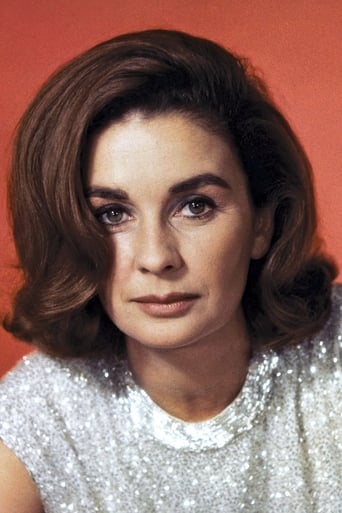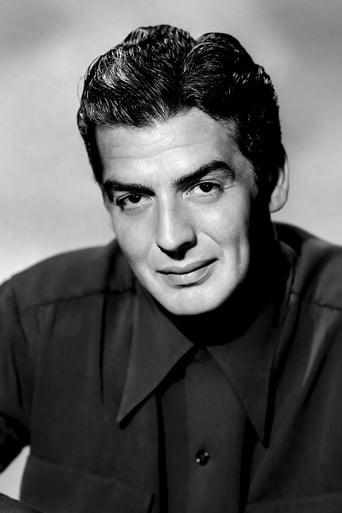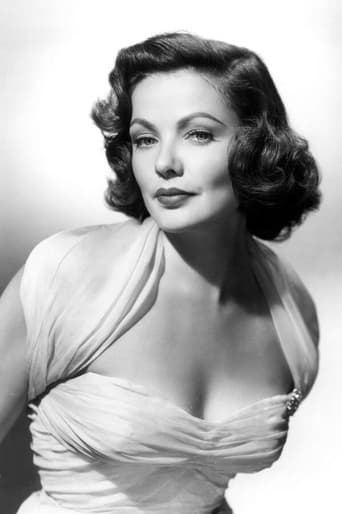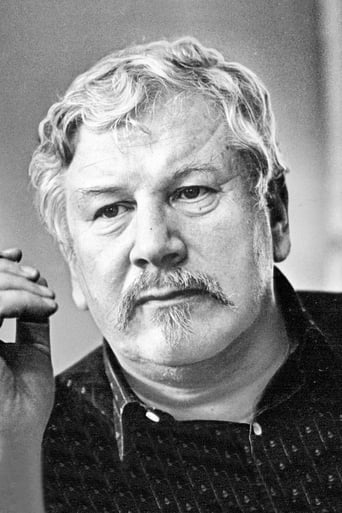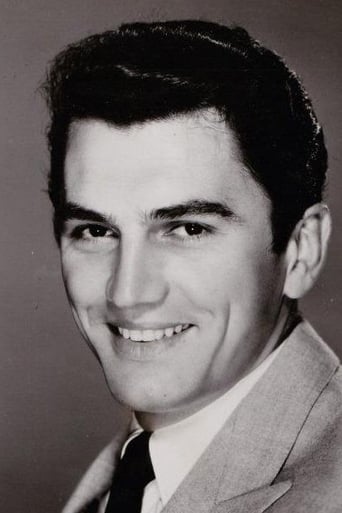Moustroll
Good movie but grossly overrated
Lumsdal
Good , But It Is Overrated By Some
SincereFinest
disgusting, overrated, pointless
Lachlan Coulson
This is a gorgeous movie made by a gorgeous spirit.
Robert J. Maxwell
First of all, this is a typical 1950s saga of adventure, intrigue, and love in an exotic place. I admit to having a hard time believing this is Ancient Egypt though. Where are all the cats? Only one is to be seen except a lion (promptly killed by the heroic Victor Mature.). Those cats were sacred. People adopted make up that imitated them. Tens of thousands were mummified. And why not? The Egyptians thought they were great in killing the rats and mice that nibbled at the hordes of stored grain. But then the prop department at least got the mirrors right -- polished brass for the aristos. What must it have been like for the masses, not to know what they looked like except from the expressions of others? I'd like you to know that I speak to you as an expert, having once successfully located Egypt on a map of Europe in the fifth grade.This movie was shredded when it appeared, largely because of the ligneous performance of the star, Edmund Purdum, but I don't know that he's better or worse than, Kerwin Mathews, say, or any others of that ilk. There's a well-known supporting cast -- the incestuous Gene Tierney, the treacherous Bella Darvi (Zanuck's main squeeze), the heinous Tommy Rettig, the serene and pretty Jean Simmons, the bald Henry Daniell, the moose-like Victor Mature, and probably the most likable performer Peter Ustinov as a humble but sagacious slave.You might not know it from all the traveling around and the intrigues and the love stories but the central figure in the narrative is Michael Wilding's pharaoh, here named Akhnaton, earlier Amenhotep or something. These names are confusing and hard to spell. In any case, Wilding's figure is an important one. His wife was Nefertiti and he himself may have fathered King Tut. Now, Nefertiti might have been an attractive woman, judging from a bust of her that shows up in popular venues from time to time, but Akhnaton didn't look like Michael Wilding. His statues show a smiling figure with a serpentine twist and a full pelvic girdles, almost feminine. After he death, many of his icons were mutilated and written references chopped out, and here's why.Egypt at the time, say 1350 BCE, worshiped an awful lot of gods representing hordes of real objects and fantasies. Akhnaton developed the idea that there was basically one god who ruled the others, the sun, called Aten, under which Egypt lived day after day unfailingly. This was the introduction of monotheism into the Middle East. It's not surprising that One Big God should come out of the mixed mythologies of the area, like Judaism, Christianity, and Islam. They all lived under One Big Sun, which probably inspired the idea. No Big God has come slouching out of the jungle.However, it didn't go over too well with the devotees of the other gods. Aknaton and his religion became even more oppressive when he began preaching peace and tolerance, when the Egyptians were accustomed to war with everybody around them. Akhnaton neglected his foreign territories and promoted internal reforms and oversaw the development of arts and sciences instead. Atenism was a violation of traditional religion and after Akhnaton's death -- poisoned by Purdum in this story -- the new religion failed and Akhnaton was seen as a traitor and his monuments defaced. Akhnaton simply overreached. Culture is a patterned thing, everything is woven together with everything else. It's not an easy thing to tear a hole in it and try to patch in some alien content.He is, nevertheless, the central figure, despite Wilding's limited screen time, because this is the story of the bellwether of modern world religions. Hinduism and Buddhism don't have One Big God. It rains too much in India.And what of Edmund Purdom, his youthful foolishness and his gradual maturation? Well, he rises in Egypt from nothing to become a famous physician. It's hard to imagine. At one point he diagnoses what appears to be a brain tumor by pressing the patient's forehead and decides to open the guy's skull. But then they did have laudanum and anyone willing to hand out an opiate is liable to become famous. And some of their instruments look almost exactly like our own, the curette for instance. The form is hard to improve upon. I mean, how would you improve on a perfect modern tool like a hammer? Meanwhile Purdom rises to prominence, then falls, then travels, then re-rises to prominence and ends up bereft of his lover but filled with faith, a kind of John the Baptist of the era.The movie itself is sluggish, with no humor except that provided by Ustinov's lying servant. The two of them move from kingdom to kingdom while geological epochs seem to pass. Yet it's a fulsome rig, with pastel curtains in the breeze, pageantry, elaborate costumes, and a stilted but still legible script. You won't see any great wars or miracles. People of faith move around and talk. It's not a total failure, and a post script at the end points out the importance of Akhnaten's position in history. You might like it.
blanche-2
The 1954 film "The Egyptian" is the type of film made to be seen on a huge movie screen. The film, directed by Michael Curtiz, spared no expense in cast, costumes, or photography.Edmund Purdom stars as Sinuhe, a poor orphan in 18th Century Egypt, who becomes a physician and is given a palace appointment by the Pharoh (Michael Wilding). But Sinuhe's life will take many turns. He becomes obsessed with Nefer (Bella Darvi) and gives her everything, including his parents' house and burial tombs, only to be rejected by her. He has to leave Egypt when the Pharoh's daughter becomes ill and Sinuhe does not appear at the palace to tend to her. He and his self-appointed slave (Peter Ustinov) travel everywhere, and Sinuhe again builds his reputation as a physician, and his wealth. Eventually he returns to Egypt, where his friend Horemhob is now the head of the Pharoh's guards, and war is about to rage.The star of this film was supposed to be Marlon Brando, but he didn't like anything about it, included Bella Darvi, so Purdom was cast. Purdom just wasn't an exciting actor, and he didn't warm up the camera. In a film that is paced slowly, his performance wasn't much help. There is, however, some wonderful acting from Peter Ustinov, Gene Tierney, Jean Simmons, and a boisterous performance from Victor Mature.Bella Darvi as Nefer gives basically a one-note performance. She was a protégée of Darryl and Virgina Zanuck, and Mrs. Zanuck thought of her as a daughter. When she found out that her husband thought of Darvi as more of a girlfriend, she threw both of them out of the house. Darvi came to a bad end, committing suicide in 1971. Here she reminds me a little of Linda Christian. She is quite beautiful and speaks with a slight lisp.Definitely worth watching, especially if you like this type of film.
dglink
An engrossing historical drama, "The Egyptian" is the book-ended story of an elderly Egyptian physician, Sinuhe, who sets out to record his event-filled life for posterity. Like Moses, he begins his story as a newborn infant in a tiny reed boat tied with fowlers' knots adrift on the Nile. The abandoned child is found, adopted, and grows into a young man. In the desert, he and his carousing buddy, Horemheb, have a chance encounter with Pharaoh Akhnaton that changes their lives and leads the pair into palace intrigue and power plays among royals and priests. Based on a best-selling novel by Mika Waltari, "The Egyptian" has lofty ambitions that are not quite met. While definitely not high art, the film is not camp or guilty pleasure either. Directed by veteran Michael Curtiz, "The Egyptian" is more than competent, and the multiple plot lines and devious characters will hold most viewers' interest.The cast is stellar for the mid-1950's, although the lead, Edmund Purdom, is probably the least well known and remembered of them. The film boasts Victor Mature, Gene Tierney, Jean Simmons, Michael Wilding, and Peter Ustinov among the usual sandal-clad cast of thousands. While Purdom can only be described as an adequate Sinuhe, seasoned performers like Ustinov, Simmons, and Henry Daniell hold their own. Even Victor Mature seems less wooden than usual as the soldier Horemheb. The film's one acquired taste is Bella Darvi, who likely won the role of the seductive man-eating Nefer on the producer's casting couch. While her Babylonian allure drew the men of ancient Thebes to ruin and despair, her Polish accent, thick features, and transparent motives are the film's weak point. Up against such legendary Hollywood beauties as Jean Simmons and Gene Tierney, Darvi's appeal is as mysterious as the pyramids. Where was Elizabeth Taylor when the role of Nefer was cast?Filmed in Cinemascope by Leon Shamroy, who won the film's only Oscar nomination and would later film another Egyptian epic, "Cleopatra," the art direction is handsome, glossy, and of dubious authenticity. Two legendary composers, Bernard Herrmann and Alfred Newman, contributed the fine musical score, although the simplistic devotional chant to Aton is annoying and repetitious. At 140 minutes, the movie is not unduly long and only goes off course in attempts to suggest Akhnaton's monotheistic devotion to the sun god was a precursor to the Judeo-Christian religion. Wielding the Egyptian ankh as a quasi-crucifix and stating that the film's events occurred centuries before Christ may make some viewers uncomfortable. However, "The Egyptian" is generally well crafted, decently written and acted, and excellent, if undemanding, entertainment for rainy afternoons when only a sand-and-sandals epic will do.
arngest
...as valuable as King Tut's tomb! (OK, maybe not THAT valuable, but worth hunting down if you can). I notice no one has commented on this movie for some years, and I hope a fresh post will spark some new comments. This is a film that I remembered only snippets of from childhood, and only saw recently when I tired of waiting for Fox to honour its own past, and hunted down the Korean DVD (in English, but with unremovable Korean subtitles). I won't go through another long plot description - suffice to say that seeing it for the first time in its proper widescreen format left me agape at the vistas and the scope of the film. The matte paintings still hold up, and the palace sets are truly breathtaking. But it is the smaller scale details that lend this film its depth and richness, offering a glimpse into the lifestyles of Egypt's poor as well as its elite. The bazaars, hovels, docks, embalming houses, and taverns are as fascinating as Pharaoh's throne room. While errors abound on the large scale (most notably the dynastic succession), the details are more meticulously researched than the vast majority of Hollywood's films. Visually, it's not without its flaws - the interiors are often too overly lit and colourful to blend seamlessly with the exteriors. Nevertheless, this is a movie that should be credited for being as audacious in the small as it is in the large. Tedious? In parts, absolutely. Overacted? Underacted? Yes, both - though 'understated' might be a more apt description. Too long? Absolutely not. I wished they had spent more time with Sinuhe's experiences in the House of Death, and among the Hittites, and less with his 'romance' with Nefer, though. Historically inaccurate? Yes, that too, but so was Shakespeare. Nobody chastises him for it. I appreciate historical accuracy as much as the next guy, but ultimately it has to be remembered that cinema is theater, not a history lesson.


